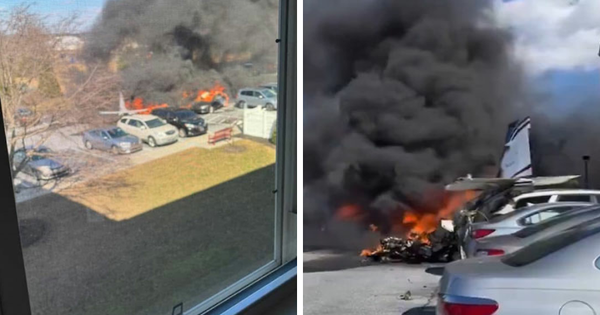Dozens of people have been arrested in Georgia, and an opposition leader was seen bandaged and bruised, after police overnight used tear gas and water cannons to disperse the latest protest outside Parliament against a bill accused of limiting media freedom.
Georgia's Interior Ministry said 63 people were arrested Tuesday in the demonstration against the law that would require media and non-commercial organizations to register as “pursuing the interests of a foreign power” if they receive more than 20% of funding from abroad. Protesters denounce it as “the Russian law” because Moscow uses similar legislation to stigmatize independent news media and organizations critical of the Kremlin.
Protesters say the bill would derail Georgia’s integration with the European Union, which granted it candidate status in December. The ruling party proposed a similar law last year but withdrew it after tens of thousands of demonstrators protested.
Russia-Georgia relations have been complicated and turbulent since the Soviet Union’s collapse in the early 1990s. Georgia joined international resolutions condemning Russia's invasion of Ukraine, but it also became a main destination for Russians fleeing military mobilization and political crackdowns. Even Georgia's ruling party has seen internal tensions over Russia.
Read moreGeorgia’s Zourabichvili: Contentious 'foreign influence' bill a copy of Russian law
On Wednesday, Georgian TV showed Levan Khabeishvili, chairman of the pro-West United National Movement party, arriving in Parliament with bandages on his nose and forehead. Members of Khabeishvili's party said he had been assaulted by police during the protests.
Purple bruising and cuts were visible around Khabeishvili's left eye as he urged fellow lawmakers to scrap the bill.
“If you are not interested in how the leader of the main opposition party has been beaten up, then – for the sake of those young people who were injured, who were hit on [their] heads and bruised – I want to ask you once more, even though I do not have any hope, withdraw this law,” he said.
Deputy Interior Minister Aleksandre Darakhvelidze alleged at a briefing that Khabeishvili broke through a police cordon the night before and was injured while he “resisted.” Darakhvelidze alleged that protesters and opposition leaders were “constantly committing violence.”
Police broke up Tuesday’s protest after demonstrators tried to block entrances to Parliament.
Earlier this month, parliament endorsed the bill on its first reading. Debate continued Wednesday during the second of three required readings before adoption.
Read moreGeorgia's fragile European dream confronted with Russian influence
As protesters gathered once more, another opposition lawmaker, Beqa Liluashvili, published a live video from the Parliament chamber that showed lawmakers shouting and physically confronting each other. One threw a stack of papers at opponents. Others were seen restraining colleagues.
“We do not want the Soviet regime that our parents have experienced," one protester, Kato Salukvadze, told The Associated Press late Tuesday. “I think that everyone should be in the streets and say no to the Russian law and yes to Europe."
Opposition politician Giorgi Vashadze said Wednesday that Georgians have the right to peaceful protest. Speaking to the AP, Vashadze called the crackdown on rallies “completely illegal.”
Georgia’s President Salome Zourabichvili, increasingly at odds with the governing party, has harshly criticized the bill and vowed to veto it if it is passed by parliament. But that veto might not be long-lasting, as the governing party can overrule it and ask the parliament speaker to sign the bill into law.
The Georgian presidency, which has notably limited powers, is to switch this year from being a directly elected position to one chosen by a college of electors that includes members of parliament.
(AP)







